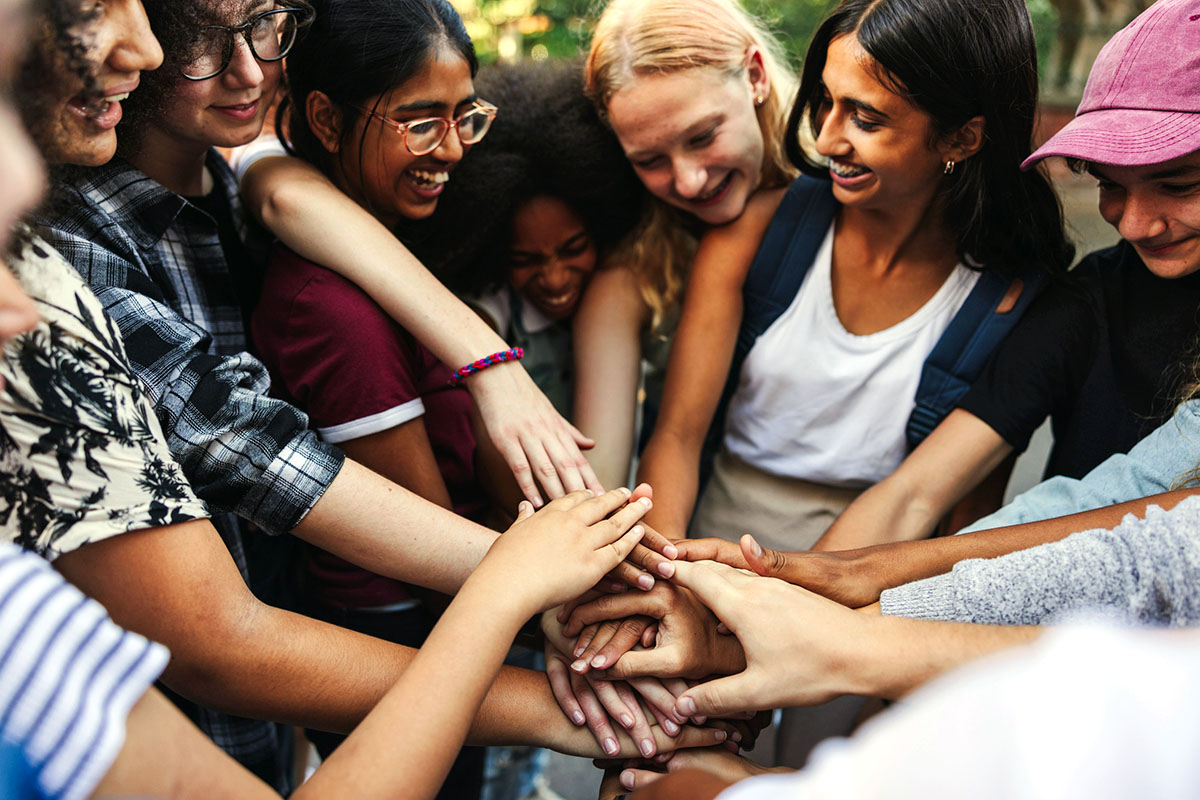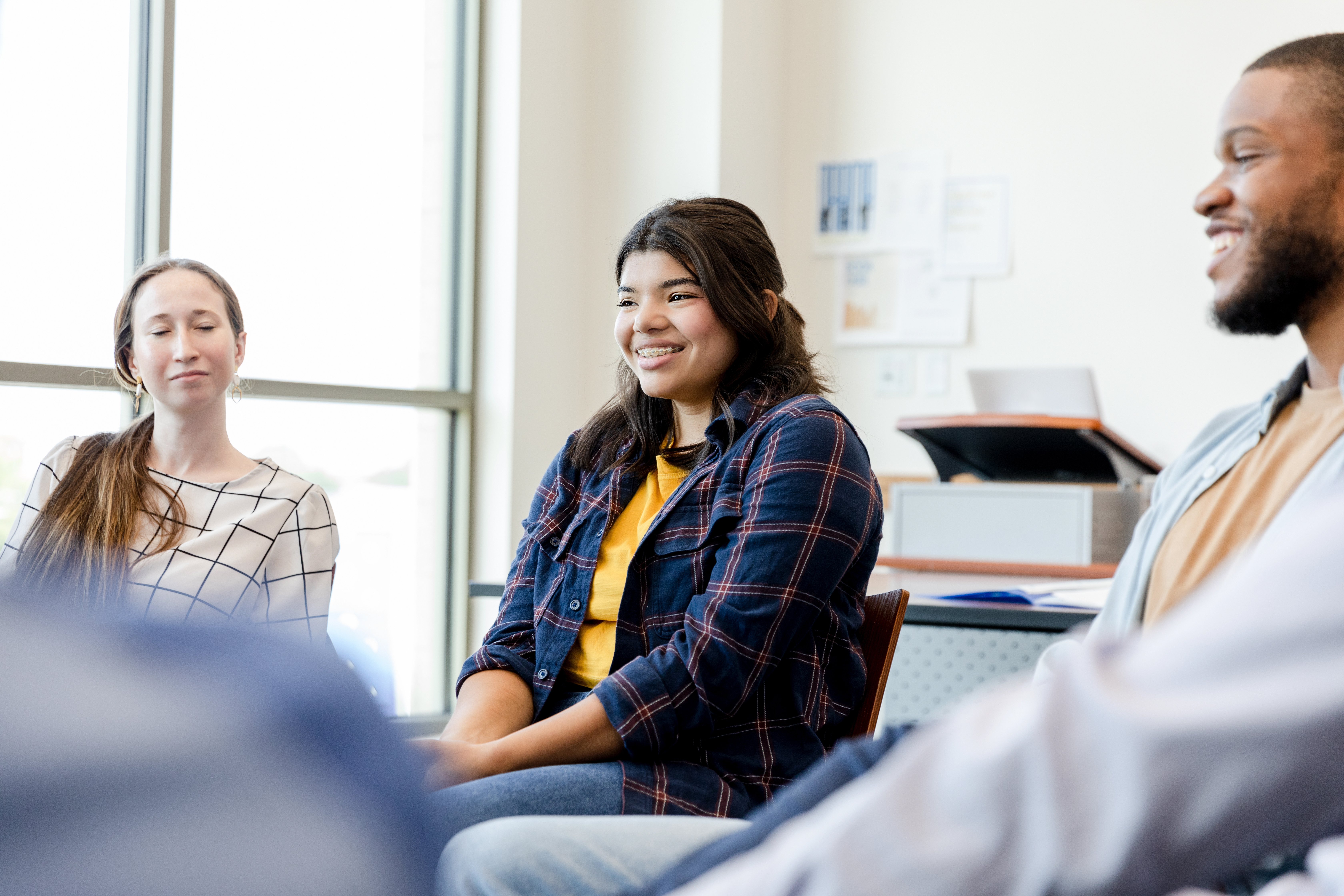Blog
More than a Movement: Why Developmental Relationships Deserve a Central Role in Youth Development
In every young person’s life, there are relationships that shape who they are, who they become, and what they believe is possible. At Search Institute, we call these Developmental Relationships, and they are at the heart of our work and vision.
These are the connections that go beyond surface-level interactions. They are relationships that express care, challenge growth, provide support, share power, and expand possibilities. They are grounded in research and built through intentional moments. And they can change the trajectory of a young person’s life.
But too often, these relationships are misunderstood, undervalued, or taken for granted. If we are serious about supporting thriving youth and building inclusive communities, it’s time to not just talk about relationships, but to build the practices, systems, policies, and cultures that make them a priority.
Every Place, Every Person, Every Young Life
For many, the idea that “relationships matter” isn’t new. When they think about the relationships that matter most, they often think of a young person’s family members. While care is foundational, it’s only part of the picture.
Developmental relationships don’t just happen at home. Young people also grow through relationships with teachers, coaches, mentors, neighbors, and peers. They take root in schools, afterschool programs, sports teams, community centers, faith communities, and everyday neighborhood interactions. These broader developmental connections help young people discover who they are, where they belong, and what they can contribute.
Yet, not all youth have equal access to these kinds of relationships. Systemic barriers can limit opportunities for connection, particularly for young people who have less access to supportive environments. Recognizing this inequity is the first step toward change.
Developmental Relationships as an Ecosystem Strategy
Through our research and partnerships, we know that developmental relationships don’t happen by chance, they happen by design. That’s why Search Institute has developed tools and frameworks to help schools, youth-serving organizations, and communities intentionally cultivate these connections.
This work isn’t just about individual impact, it’s about systems transformation. By embedding developmental relationships into the fabric of programs, policies, and practices, we can shift from a deficit-based approach to a strengths-based ecosystem of support.
Our research has shown that developmental relationships are defined by five key elements:
-
-
Expressing Care: Showing young people they matter.
-
Challenging Growth: Encouraging them to push beyond what’s comfortable.
-
Providing Support: Helping them complete tasks and achieve goals.
-
Sharing Power: Giving them voice and choice.
-
Expanding Possibilities: Connecting them with opportunities and new ideas.
-
These elements aren’t just a checklist, they’re a mindset. They’re what elevate regular interactions into developmental relationships.
Cultivating Connection, Together
Developmental relationships don’t happen in isolation. They’re nurtured by ecosystems that value connection and prioritize youth development, including those across schools, afterschool programs, families, faith communities, and neighborhoods.
If we want every young person to have access to these relationships, we must engage the full community in building and sustaining them.
How to engage communities in the work of relationships:
- Start with Shared Language: Use a common framework, such as Search Institute’s Developmental Relationships Framework, to help adults understand what it takes to build meaningful, intentional relationships with young people.
- Elevate Youth Voice: Invite young people into the conversation. Ask them what they need, who supports them, and where relationships are missing.
- Break Down Silos: Partner across spaces and sectors to create consistent opportunities for connection.
- Offer Practical Tools: Provide training and accessible resources that empower adults to build stronger, more intentional relationships with youth.
- Celebrate Relationship-Building Wins: Highlight stories of impact to inspire and reinforce the power of relationships in action.
Developmental relationships are not just a youth development strategy, they are a community-wide commitment. When we design systems that make it easier for adults to connect, support, and grow with young people, we build a stronger, more inclusive future for everyone. Because when young people thrive, we all do.





